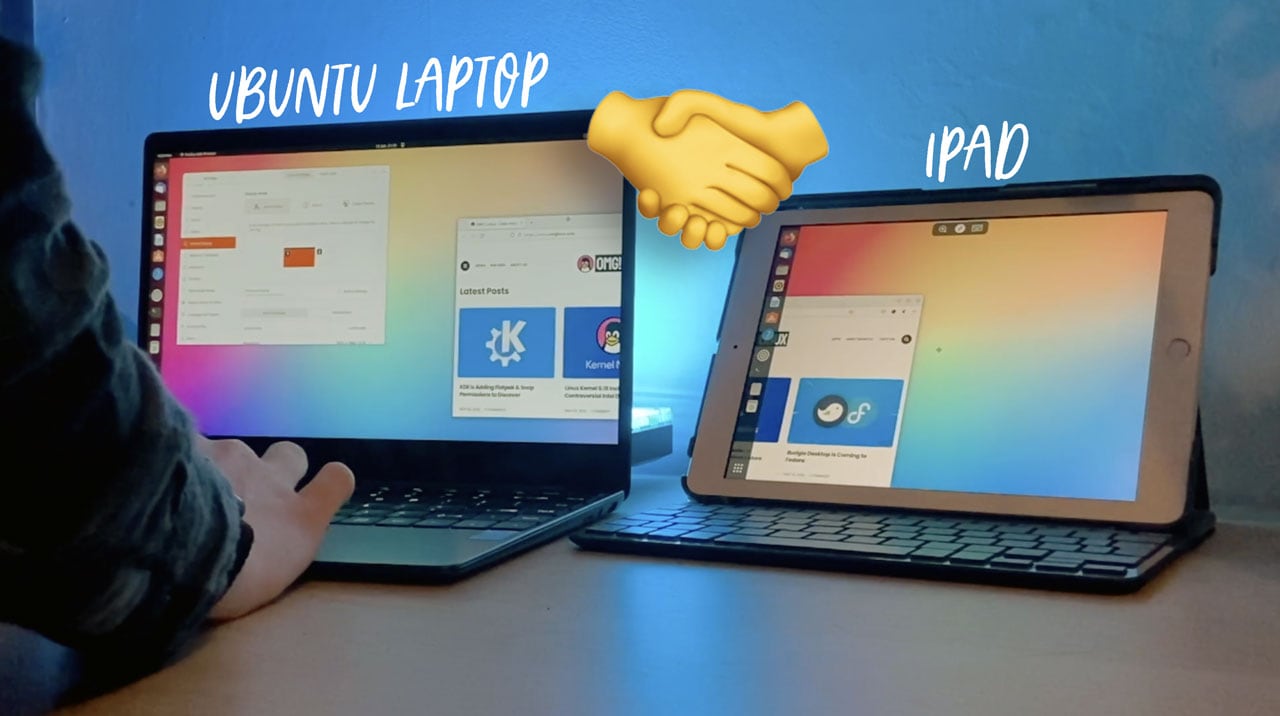Among the various GNOME 42 features were a number of changes relating to the desktop’s support for the remote desktop protocol (RDP) and screen sharing. This included the ability to extend the desktop on to a virtual monitor as though it were a real one (including respecting any multi-monitor preferences you have configured).
Now, using a tablet as a second screen using RDP asks a little more of performance than just being able to access a desktop over RDP (which can be pretty laggy). To help, GNOME devs plumbed in frame tracking and enhanced hardware acceleration to ensure we get a smooth experience (though as this is still network dependant, don’t expect miracles).
In a nutshell, on any Linux distribution using GNOME 42 you can use a RDP-supported device (e.g., an Android tablet, an old iPad, another computer) as an external monitor in much the same way as Apple’s SideCar feature (which lets macOS lets users extend their desktop on to an iPad screen).
See
Using a Tablet as a Second Monitor in Ubuntu is Actually Pretty Easy - OMG! Ubuntu!#
technology #
virtualmonitor #
ubuntu #
linux #
opensource 
You can use an iPad or Android device as a second monitor on Ubuntu 22.04 LTS thanks to GNOME 42 and changes it made to RDP. We look at how to set it up.
